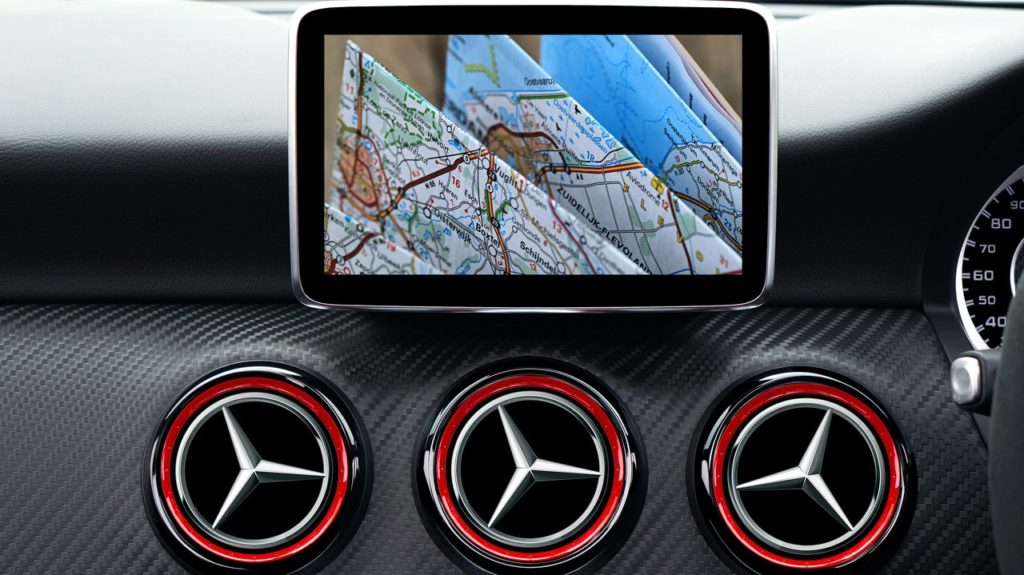 GPS was invented by the Department of Defense in the early 1970s, after being inspired by Navy Scientists. In 1973, they launched the first satellite in space. Today, almost 50 years later, there are 34 GPS satellites in space. Today, the GPS is multi-use and accessible to all. Is it not fascinating that the technology you use to choose which road to take is the same one scientists use to launch missiles in space? People all around the globe use GPS, which stands for the Global Positioning System.
GPS was invented by the Department of Defense in the early 1970s, after being inspired by Navy Scientists. In 1973, they launched the first satellite in space. Today, almost 50 years later, there are 34 GPS satellites in space. Today, the GPS is multi-use and accessible to all. Is it not fascinating that the technology you use to choose which road to take is the same one scientists use to launch missiles in space? People all around the globe use GPS, which stands for the Global Positioning System.
It is not a rare technology but an essential for day-to-day lives now. Advancement in technology has made GPS accessible to all everyone has access to GPS and can use it for its benefits. The use of GPS by the common people has changed our everyday life as well. It has changed the way we approach day-to-day activities.
Today’s world demands convenience from all activities. Among other things, convenience is a result of using GPS in our lives- GPS has enhanced our directional accuracy, saved our time, and adapted to other technologies to make our lives easier. This technology has been adopted by governments, businesses, scientists, and regular people like us. It is almost as if our society as a whole uses this technology! With wireless communication coming into play, GPS devices have become small enough to fit in your palm. You can attach it anywhere and carry it wherever you would like.
To understand how this technology has impacted our society, we must take a look at the fields it is used in.
Where Have We Been Using GPS Technologies?
Navigation
Road signs and boards are a thing of the past now. All you need is the location feature of your phone to be on for the GPS satellites to track it. Even while traveling to places near you or within your city, GPS can help. With satellite imaging, it can tell you which routes are faster and which ones are burdened with traffic. So, you can make a conscious choice while driving and choose roads that do not delay you from your destination.
GPS is of integral use while traveling to unknown destinations. Just like road signs, you can discard your printed maps and address books as well- GPS does the job. It shows you the best routes that take you to your location. With GPS the risk of missing a turn or getting lost is negated. Going out with your family or friends on a road trip has never been easier. The stress of reaching your location disappears as you know your GPS tracker is reliable. If anything, you find your places quicker than expected!
Real-Time Personal Tracking
GPS offers tracking in real-time. What this means, is that you can trace the live location of someone or something from the comfort of your home. This feature is a boon for many- parents with little children, the elderly, owners of multiple assets, etc. All you have to do is attach a magnetic tracker to your child’s school bag to ensure their safety. For cars and other vehicles- a portable personal tracker will do the job. You can connect these trackers with your mobile phone through an easy-to-use app. Real-time tracking has never been more convenient!
Fleet Management and Other Businesses
For fleets, the GPS function is a necessary one. Today’s fleets cannot operate without GPS. Fleets make use of GPS daily for all tasks. With GPS, picking up goods and delivery becomes easy and more streamlined. This tracking also helps with inventory-based jobs so that you know the location of the stock, the warehouse and know when it’s moving, etc.
GPS tracking also helps gather vehicle data. It informs you about fuel records, reckless driving habits such as hard braking and acceleration, and if any maintenance is required. Most GPS devices also come with a feature called geofencing; which allows fleet managers to set up geo boundaries for their trucks. Through this they can ensure that their drivers take no detours and are always on track.
Military and Defense
Satellites and missiles, especially long-range missiles need to be launched accurately. They can be disastrous otherwise. GPS technology is what takes them to their destination without human intervention. There are no detours, and the target is always spot-on. In case of missiles, accuracy can often be a case of life and death. It can result in loss of life, property, and immeasurable collateral damage. Hence, GPS-controlled missiles are used. Accuracy is a top priority in these matters. Without GPS, there is no way one can find out whether the missiles will reach their destination.
Even for satellites, there is no way to know whether the satellite has reached its location without GPS. This technology is the guiding factor for satellites in space.
Additionally, this is the case not only for these two but also for marine navigation. Many sailors would lose their lives if GPS was not available. Marine navigation requires top-notch accuracy, or else many lives will be lost at sea. GPS here also helps detect storms and weather conditions beforehand.
GPS technology is not just a source of comfort but also of survival. It helps prevent losses of both property and life.
GPS systems are becoming prevalent in almost all fields of life. Without GPS, tasks that seem menial today would not have been possible in the first place. It has embedded itself in industries and is now a prerequisite to most. Without GPS, the transportation industry would take a backseat. Today, it contributes to the billion-dollar industries as well.
GPS has changed the way we live our lives to the very core. It influences our personal lives as well as our businesses. The product is highly profitable and beneficial as well generating jobs for many. With GPS, the environment is safer than it used to be. Parents and children alike are more relaxed. It fulfills the requirements of comfort, convenience, and emergency aid at all times.





